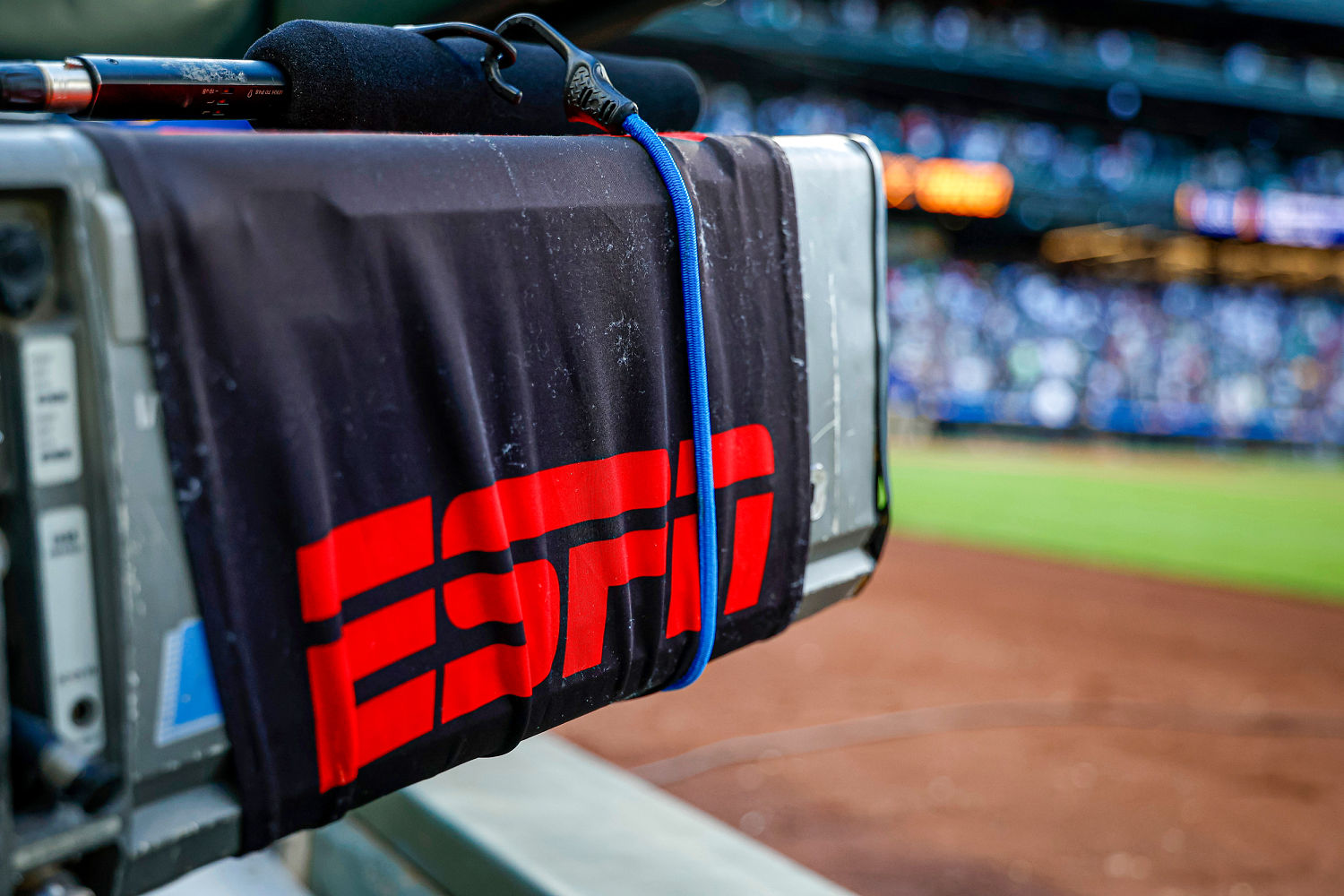In an early episode of Squid Game 2, the series’ working-class hero Seong Gi-hun (Lee Jung-jae) is summoned to a dance club on Halloween night. Weaving among revelers dressed as sexy nurses, cops, and skeletons, he eventually spots the masked figure he’s been pursuing, clad in the hot-pink tracksuit of a Squid Game guard. The scene may well be a nod on the part of creator Hwang Dong-hyuk to the ubiquity of Squid Game Halloween costumes in 2021, when the holiday fell roughly six weeks after Netflix’s Korean megahit debuted and quickly became the platform’s most-watched series of all time. Regardless of Hwang’s intentions, the immediate connection that fans will surely make between this moment and the show’s instant commodification speaks to how drastically the latter phenomenon has shifted its meaning.
Squid Game—you know, the blood-spattered thriller about how capitalism pits desperate people against one another in a battle royale for the entertainment of depraved elites—has been a brand for as long as it has been a global sensation. Viewers buy Squid Game merch, pay to participate in Squid Game simulations, and tune in to Squid Game spin-off reality competitions. When you consider that the show is a product of the world’s biggest streaming service, this trajectory is as predictable as it is ironic. But now, as the long-awaited second of three planned seasons premieres, it’s clear that the Squid Game-industrial complex has undermined Squid Game the work of political art, in ways both tangential to Hwang’s storytelling and intrinsic to it.
 Lee Jung-jae in Squid Game 2Juhan Noh—Netflix
Lee Jung-jae in Squid Game 2Juhan Noh—NetflixWhen we last saw Gi-hun, the guilt-ridden victor had been en route to the airport to reunite with his young daughter in the U.S. when he spotted Squid Game’s recruiter (Gong Yoo) approaching new victims in a subway station and realized he couldn’t just walk away with his 45.6 billion won. So much for a fresh start. In a brief intro to the Season 2 premiere, Gi-hun leaves the airport, vows to find Squid Game’s mysterious masterminds “no matter what it takes,” and cuts out the tracking device they inevitably implanted under his skin.
Two years later, he’s holed up in the seedy Seoul hotel that has become his personal fortress, still obsessed with taking down the monsters who made him rich. To that end, he’s paying a sketchy search party millions to scour the transit system for the White-Rabbit-esque recruiter. Meanwhile, police detective Hwang Jun-ho (Wi Ha-jun) has recovered from an attempted murder at the hands of his older brother, In-ho (Lee Byung-hun). His Season 1 search for that sibling, who’d disappeared years earlier, led him to Squid Game island, where In-ho revealed to Jun-ho that he was the deadly playground-game tournament’s diabolical Front Man—and then shot Jun-ho after he refused to join In-ho in the annual slaughter of 455 unwitting debtors. Now a disillusioned traffic cop, Jun-ho gets drawn into Gi-hun’s unofficial investigation, which sends Gi-hun to the arena for Squid Game 2024 as Jun-ho and his motley team try to follow him and end the game forever. Like the castaways of Lost, they have to go back to the island.
 Wi Ha-jun in Squid Game 2No Ju-han—Netflix
Wi Ha-jun in Squid Game 2No Ju-han—NetflixIt takes too long—two plodding episodes out of just seven this season—to get them there. As it stalls, the show unnecessarily reiterates Gi-hun’s broadsides against the bored billionaires for whom Squid Game is a spectator sport and burns time on characters who don’t end up being especially important. Once Gi-hun is back in his green tracksuit, we meet the new players who give the season its emotional stakes, but the plot feels too much like a rehash of Season 1: play, murder, rage, repeat. (In that sense, Squid Game 2 is extremely similar to another super-popular death-game sequel, The Hunger Games: Catching Fire.) It’s pure fan service when the giant, creepy robot doll Young-hee returns for another round of Red Light, Green Light. Yes, there are new games, but their candy-colored, nursery-rhyme-soundtracked killing fields aren’t meaningfully different from the violent spectacles viewers saw last time. Once the games have begun, Jun-ho’s search for the island becomes an afterthought. And the finale’s cliffhanger ending is so abrupt, it leaves the disjointed season feeling frustratingly unfinished.
Not that Squid Game 2 is a total disappointment. It remains one of the most aesthetically distinctive and compellingly acted shows on TV; Lee Jung-jae’s international success, in particular, is worth celebrating. It’s nice to see more and better-developed female characters this season, from a pregnant player to a self-styled shaman. There’s a man (Yang Dong-geun) who’s surprised to find his mom (Kang Ae-sim) has entered the games in hopes of helping him pay off his crushing debts. (I couldn’t help but think of the beloved mother-son team from Squid Game: The Challenge.) The first guard we really get to know is a woman (Park Gyu-young), albeit one whose storyline never delivers on the promise of early episodes. An empathetically portrayed trans woman who also happens to be an army veteran makes a strong argument for LGBTQ people in the military (though that statement is somewhat undermined by the already-controversial choice to cast a cisgender male actor, Park Sung-hoo, in the role).
 Yang Dong-geun and Kang Ae-sim in Squid Game 2No Ju-han—Netflix
Yang Dong-geun and Kang Ae-sim in Squid Game 2No Ju-han—NetflixThematically, a rule change that has the players voting after each game on whether to continue or stop and split the money they’ve earned so far develops ideas about the tyranny of the majority that the first season only suggested. Watching the uniformed masses lock in their often-suicidal choices, one by one, triggers the same trepidation as watching election results roll in. Yet these sequences, like each individual game, stretch on for too long. By the third round of voting, anxiety gives way to boredom. It takes almost the entire season to break through various forms of monotony, and when interesting stuff finally starts to happen, you get the sense that you’ve just spent seven hours watching what amounts to a supersize teaser for Season 3.
Squid Game the brand, which must supply content to satisfy customer demand, has superseded Squid Game the show, whose first season constituted a complete artistic statement. “I had no intention of doing a second season,” creator Hwang recently told Variety. But in another bitter irony, he'd previously explained that he'd only signed on to continue the series because he felt he'd been inadequately compensated for the debut season.“I’m so sick of Squid Game,” Hwang complained in the same Variety interview. “I’m so sick of my life making something, promoting something.” That exhaustion is palpable throughout Season 2.
There’s no separating this excess of narrative from the glut of Squid Game derivatives we’ve been sold over the past three years. Merch both official ($110 Young-hee necklace, anyone?) and unofficial has proliferated. Mattel, Crocs, Johnnie Walker, and many more jumped on the Season 2 brand-collab bandwagon. Netflix has invited fans to play non-lethal Squid Games, from The Challenge to immersive Squid Game: The Experience pop-ups on three continents, as though the point of the series was that macabre versions of childhood games are fun. King of YouTube MrBeast broke the internet with “$456,000 Squid Game in Real Life!” Then he parlayed that hit into the Prime Video contest Beast Games, which premiered just a week before Squid Game 2. In an unfortunate instance of life imitating art, the New York Times reported several cast members’ complaints of sleep deprivation, inadequate food, and even hospitalizations on the set of the off-brand competition.
The populist point of the original Squid Game was that we should resist the commodified and aestheticized violence inherent in a system that enriches a wealthy few while forcing the poor to fight each other for scraps. If anything, the bankability of Squid Game the brand—a category in which I’d include Squid Game 2—illustrates how thoroughly we’ve failed to absorb that lesson. What Squid Game does has drowned out what Squid Game says. And what began as a stark satire of greed, exploitation, and economic polarization has largely devolved into a cash-cow franchise like any other. It reminds me of something the Front Man tells Gi-hun in the new season: “The game will not end unless the world changes.” Will it ever?
.png)
 2 weeks ago
19
2 weeks ago
19


































 Bengali (BD) ·
Bengali (BD) ·  English (US) ·
English (US) ·